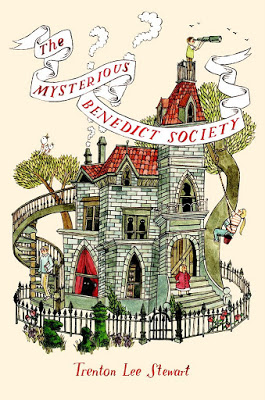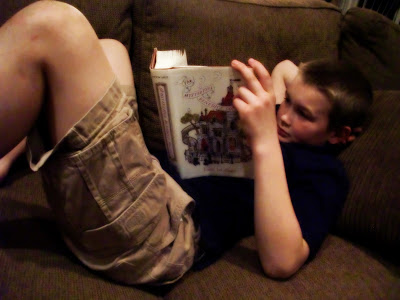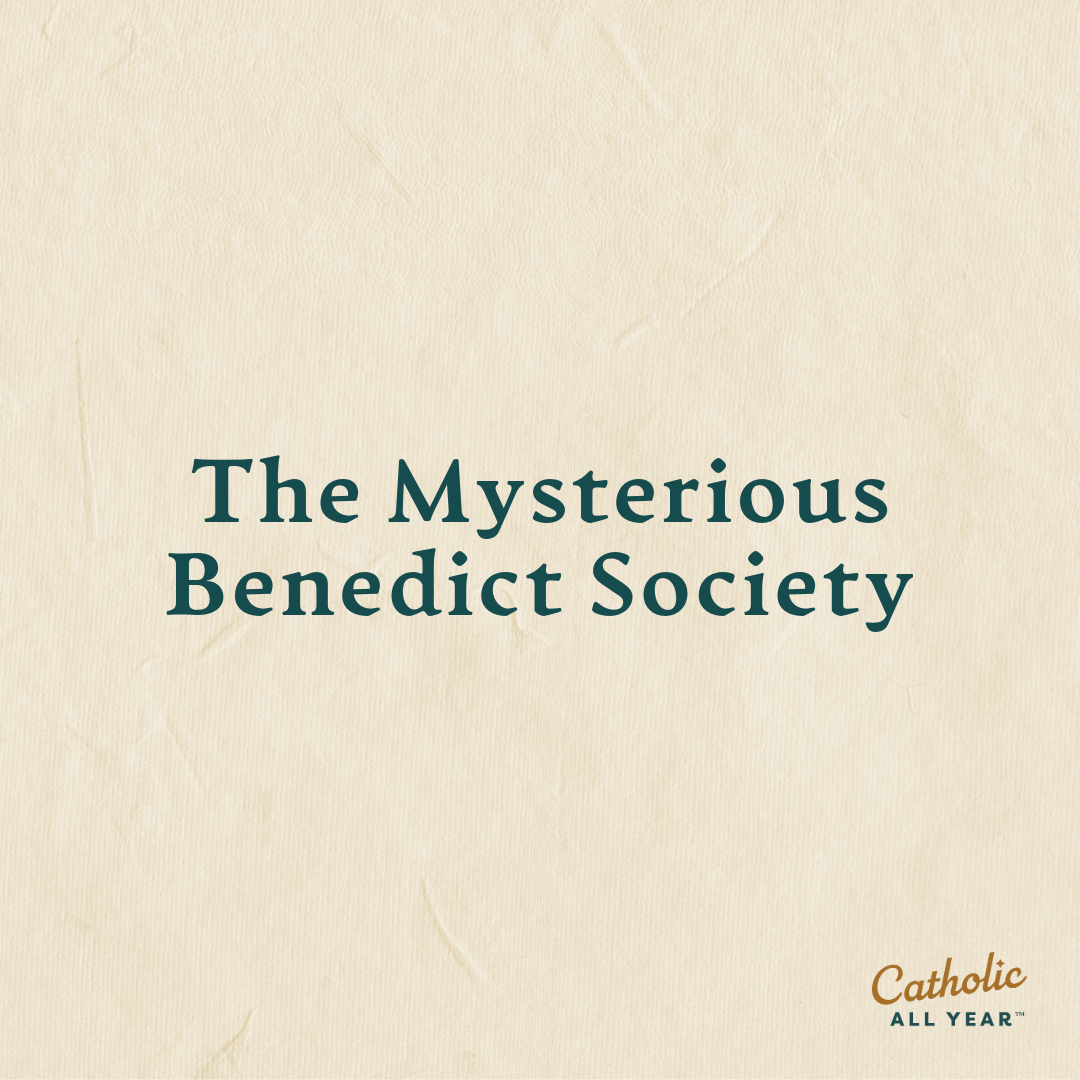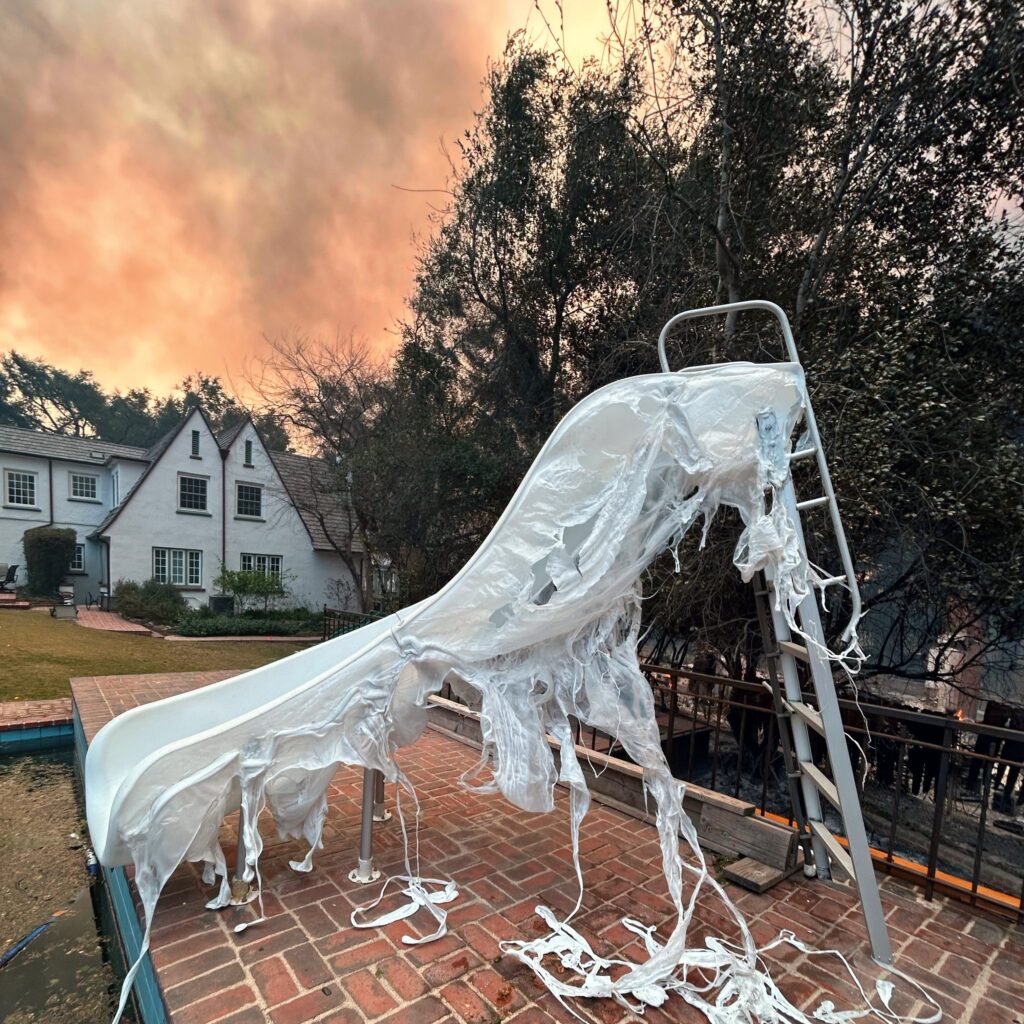Hey all, while we’re out of town for Easter Break, I’m cleaning out my drafts folder. So if this sounds like it was written a while ago, it probably was. I’ll still be checking comments, so feel free to have an opinion. And a very happy Easter to you and yours!
After being SO VERY DISAPPOINTED by Percy Jackson and the Lightning Thief, I’ve really been hoping to find a recent middle-grade book that I could wholeheartedly recommend. And I am happy to report that I have succeeded!

The Mysterious Benedict Society by Trenton Lee Stewart, is a clever, funny, well-written and virtuous tale of mystery, adventure and friendship. Both my ten-year-old son and I really enjoyed it. The publisher recommends it for ages 8 and up, which sounds about right.
This book celebrates children’s unique abilities, rather than spouting the more common “you can be anything you want to be” nonsense.
The children face danger and make self-sacrificing choices. They face realistic moral dilemmas and (mostly) make the right decisions. They learn to face their fears and depend on each other. AND they save the day (at least for the time being).
WARNING: spoilers ahead . . .

Just a few of the great topics for discussing this book with your kids are:
- What are the particular strengths of each of the characters? How does each character use the special gifts God gave him or her to help defeat Mr. Curtain? What are your special gifts? What are you best at? How could you use those talents to help your family? How do the children learn that they must work together? That even with their great talents they need the help of their friends?
2. The children face many moral dilemmas in this book. Reynie is able to resist the temptation to cheat on the entrance exam at the beginning of the book, even though it means he may not get to do something that’s very important to him. But later, the children decide to help each other cheat on the exams at the institute. How are these instances different? Do the children owe the evil Mr. Curtain and his fake school the same honest effort on tests that they owed Mr. Benedict? What about when Reynie misleads Mr. Curtain about how he feels about Constance? Or when Sticky tells an outright lie to Mr. Curtain about Martina Crowe? Or when another student is expelled after Reynie is spotted spying on the executives? (Hint, I believe that Catholic moral teaching would allow for the cheating on the tests, and misleading Mr. Curtain, based on the concept of mental reservation, but that Sticky’s outright lie and the children allowing a student to take the blame for them in the last situation are NOT permissible, EVEN in dire circumstances. Did Jean Valjean teach us nothing Reynie?)
3. Reynie, Sticky, Kate, and Constance are all described as “lovers of truth,” which is why they don’t much like to watch TV and so haven’t been affected by the messages being broadcast by the Whisperer. Are you a lover of truth? Is TV a good way to get “truth”? In this book watching TV has convinced most people that there is an “Emergency” and that everything is dangerous and hopeless. Could watching the real news do the same thing? What about books, even fictional books? Can they teach us about truth?
4. The fake relief from their fears that Reynie and Sticky get inside the Whisperer tempts them to join Mr. Curtain’s side. How are they able to resist that temptation? Does having people we love and want to protect help us to be brave and make the right decisions? How do Reynie and Sticky feel after they actually face their fears rather than hiding from them.
5. When we meet Reynie, Sticky, Kate, and Constance, they are each parentless. How has this changed by the end of the book? What connects people together as a family?
While there are a couple of points (see #2) on which the author doesn’t get it quite right, overall this is a very enjoyable book. There is mystery and action and humor. The characters are refreshingly non-stereotypical and I’d guess that a lot of homeschool kids would identify with one of them. The children struggle to face their fears and do the right thing. They don’t celebrate immoral behavior, nor do the right decisions come so easily to them as to be unidentifiable.

I’m a Kate!
There are two more books in the series: The Mysterious Benedict Society and the Perilous Journey, The Mysterious Benedict Society and the Prisoner’s Dilemma. Plus a prequel: The Extraordinary Education of Nicholas Benedict and an activity book: Mr. Benedict’s Book of Perplexing Puzzles, Elusive Enigmas, and Curious Conundrums.
Jack and I have just started the second book, I’ll let you know what we think when we’re done.
Update: We’re about 1/3 of the way through the second book and I’m feeling mixed about it. I still love the characters and the writing is still funny and clever. But one of the things I LOVED about the first book was that the author managed to write an adventure story with kid-heroes who do not inexplicably decide to run off and try to save the day without involving their parents or teachers or police.
He, unfortunately, doesn’t manage it this time. It’s a wearingly common conceit in kid-lit. I always stop the read-aloud or the CD or the movie and point it out to my kids. “Okay, what SHOULD the kids do right now?” “Go get HELP.” “Why don’t they?” “Because then the story would be over.”
We’re still reading, and I’m hoping that will be my only complaint!




